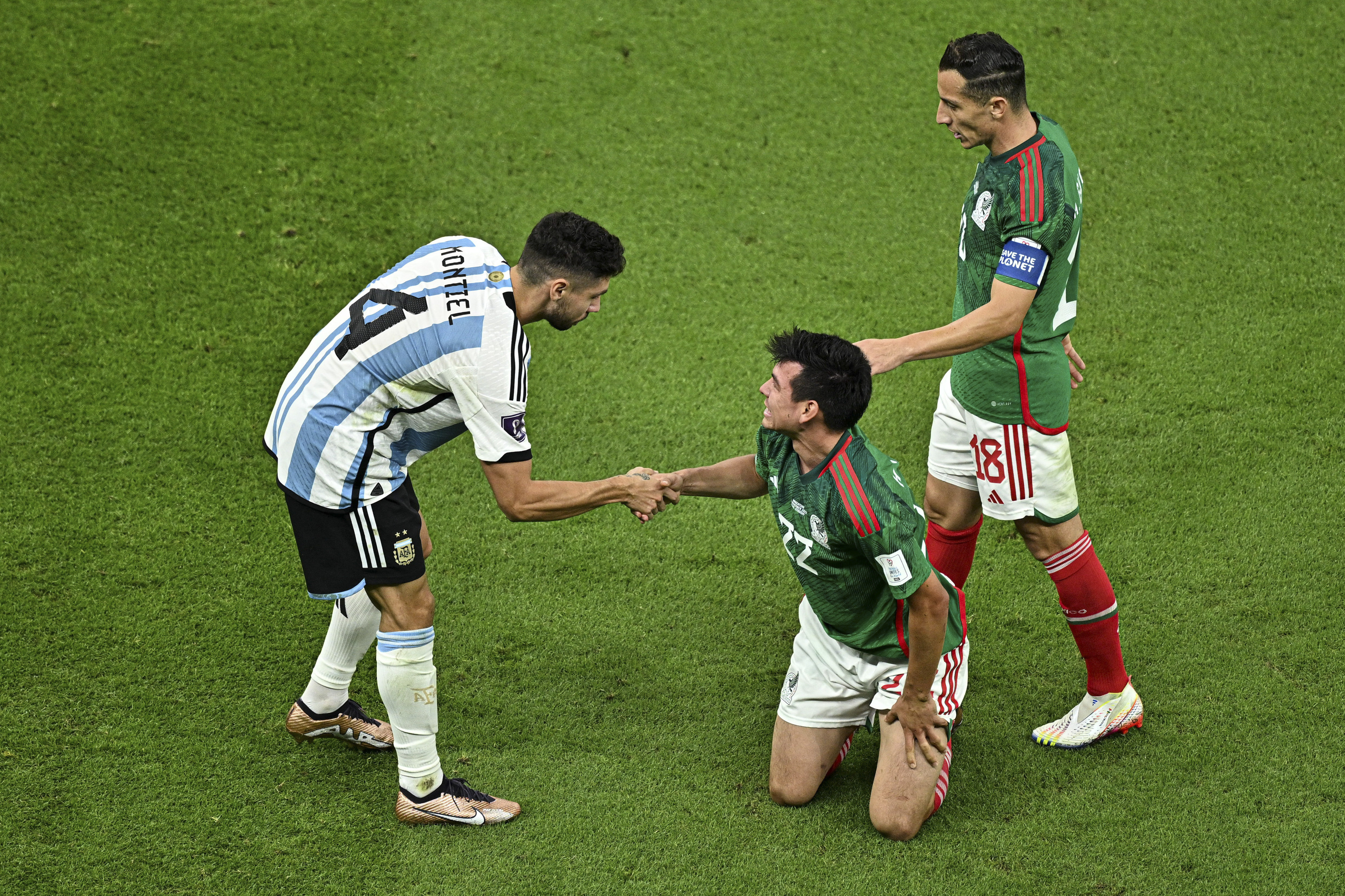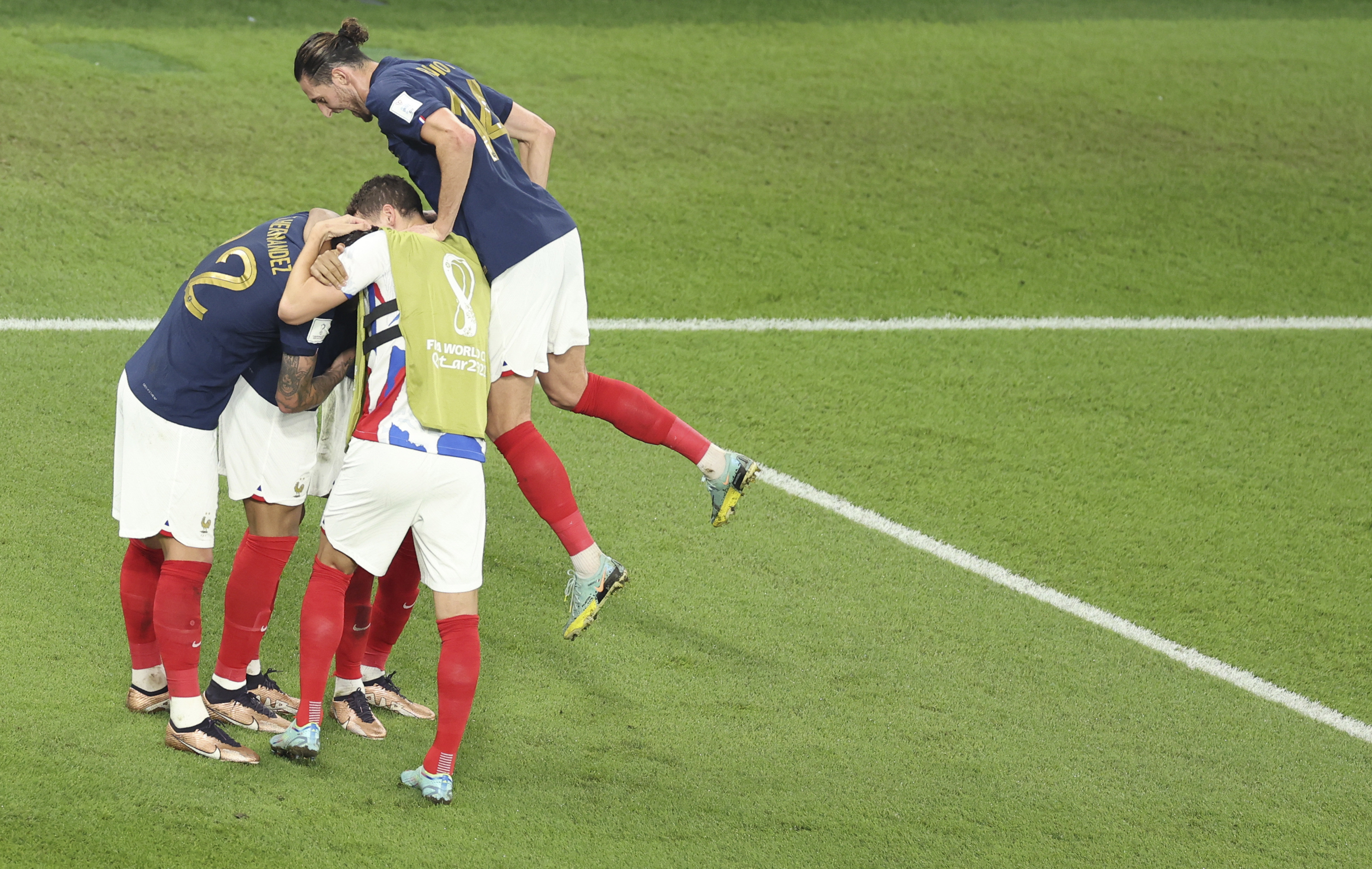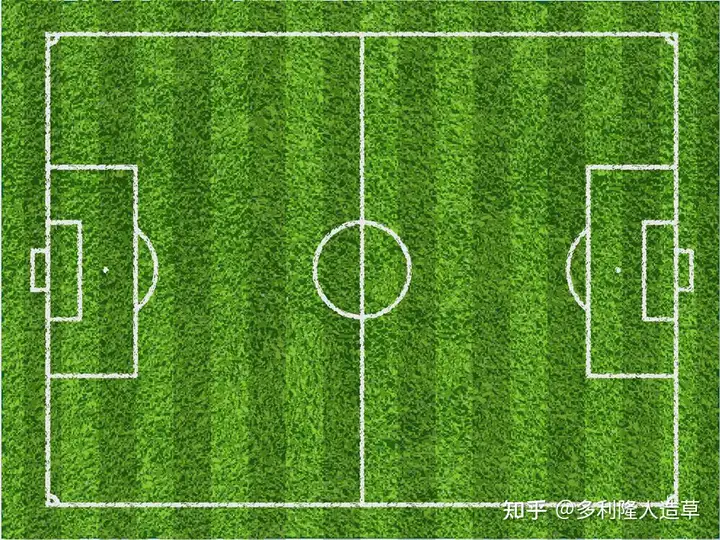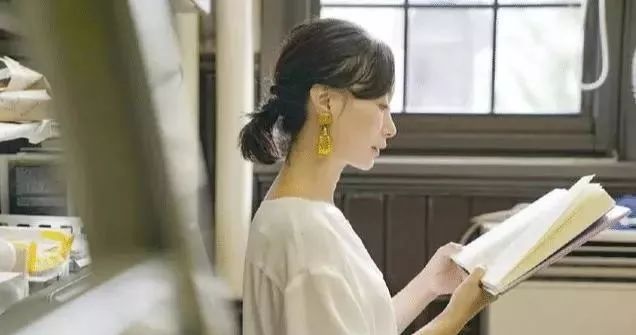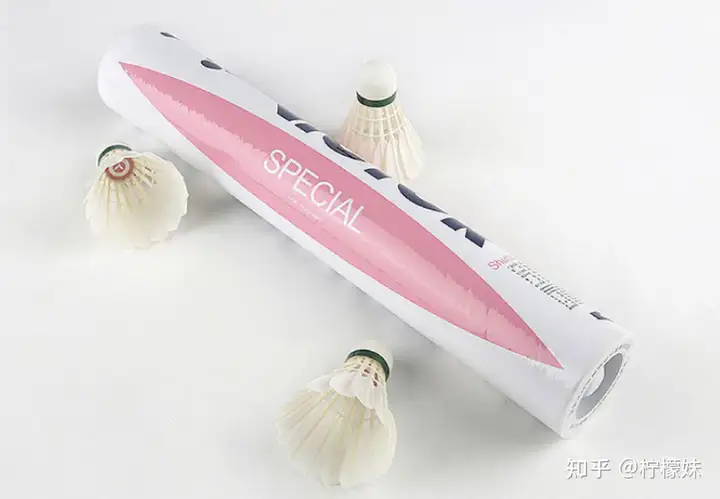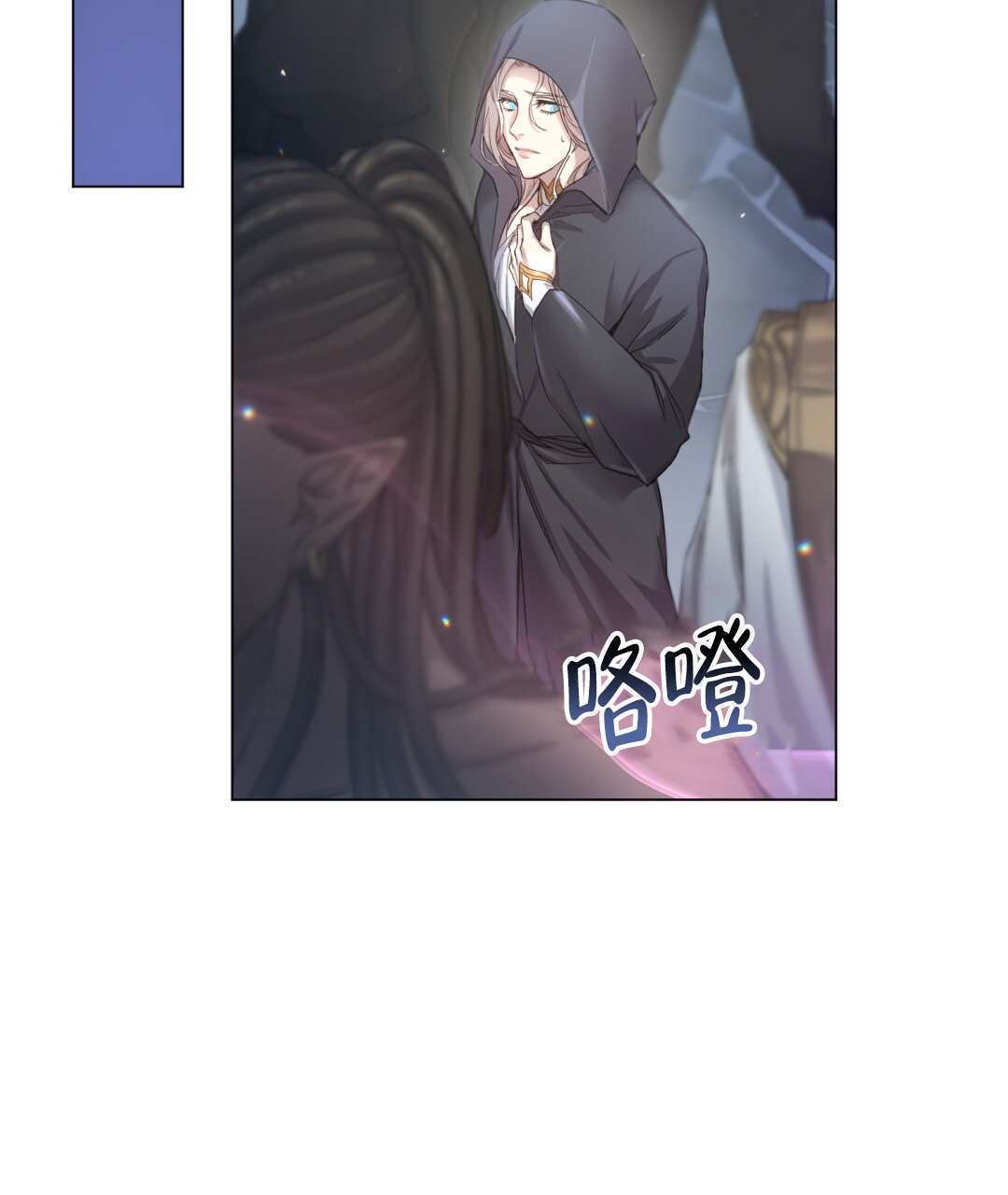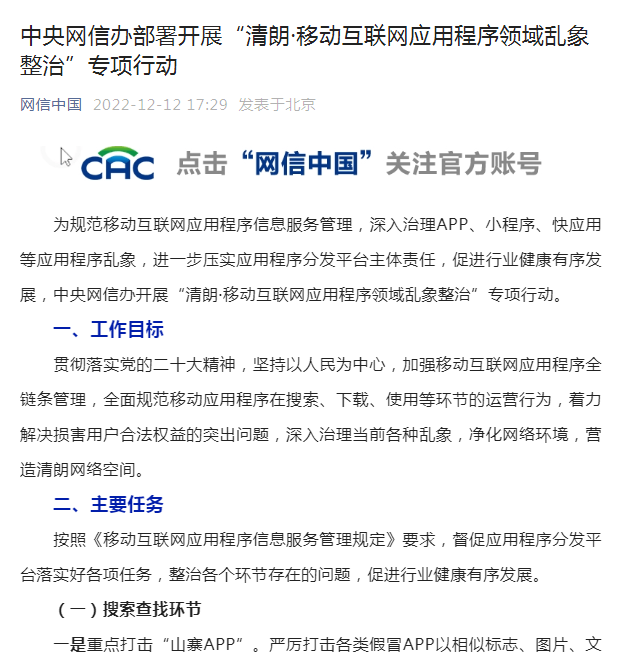初中语法24讲 第5讲 形容词
第 份
初中语法讲义
形容词
年 月 日
第5章 形容词
形容词用来修饰名词,说明事物或人的性质或特征。通常形容词可以分成性质形容词和叙述形容词两类,其位置不一定都在名词前面。大多数性质形容词有比较等级的变化,可分为原级、比较级和最高级三种基本形式,用来表示事物的等级差别。原级即形容词的原形,比较级和最高级都有规则变化和不规则变化两种。
典型例句:1.I have a lovely sister.(我有一个可爱的妹妹。)
典型例句:2.It is sunny in Beijing today.(今天北京天气晴朗。)
1.形容词的种类、位置和用法
形容词修饰名词,说明事物或人的性质或特征。形容词可分成性质形容词和叙述形容词两类,其位置不一定都在名词前面。
1.形容词的种类
形容词可以分成性质形容词和叙述形容词两类。
She has curly hair.She is good-looking.(她有一头卷发,她很漂亮。)
(1)性质形容词
直接说明事物的性质或特征的形容词,我们称之为性质形容词。它有比较级和最高级的变化,可以用程度副词修饰,在句中可作定语、表语和补语。性质形容词在形容词中占大多数。
fat胖的
glad高兴的
interesting有趣的
foolish笨的
hot热的
beautiful美丽的
It is a very funny(funny作定语)comedy.(这是一出非常有趣的喜剧。)
The comedy is very funny.(funny作表语).(这出喜剧很有趣。)
All of us will try our best to make this comedy funny(funny作宾语补足语).
(我们所有人将尽力使这出喜剧有趣。)
补充:“形容词+名词”可以改为“主语+be动词+形容词”。
This is an old book.(这是本旧书。)→This book is old.(这本书是旧的。)
“make+名词+形容词”意为“使……显得……”。
The dress makes my mother much younger.
(这件衣服使我妈妈显得年轻多了。)
(2)叙述形容词
叙述形容词主要作表语,或者作后置定语,所以又称为表语形容词。它没有级的变化,也不可用程度副词修饰。大多数以a开头的形容词都属于这一类。
afraid害怕的
alone单独的
asleep睡着的
alive活着的
awake醒着的
ill病的
The boy is afraid of his father.(这个男孩怕他爸爸。)
There were thousands of fish alive in the lake ten years ago.
(十年前,这个湖里有成千上万条鱼。)
(⚪)The sick man was afraid of death.(这个病人害怕死亡。)
(×)The ill man was afraid of death.
(3)其他形容词
还有一类形容词用于说明事物间的关系或事物的用途、时间、方位。这类形容词通常都没有级的变化,也不能用程度副词修饰。
Chinese中国的
permanent永久的
western西方的
2.形容词的位置
形容词作定语修饰名词时,要放在名词的前边。但是如果形容词修饰以-thing结尾的词语时,要放在这些词语之后。
There is something wrong with this watch.(这只手表出了点故障。)
What a wonderful game!(多么精彩的比赛!)
I was chatting with some old friends.(我那时在和几个老朋友聊天。)
He wants to do something different this time.(这一次他想做一些与众不同的事情。)
We saw something white in the dark.(我们在黑暗中看到了一些白色的东西。)
Is there anything important in the newspaper?(报上有什么重要新闻吗?)
(1)形容词的顺序
如果形容词所修饰的名词还有冠词(a,an,the)或代词(my,this,that...)修饰时,词序为:冠词/代词+形容词+名词。
a beautiful girl一个漂亮的女孩
an excellent musician 一个卓越的音乐家
your favourite music你最喜欢的音乐
(2)形容词的后置
A.前面我们讲到,形容词作定语时要放在所修饰的名词前面,但当名词前面有表示量度的词或词组时,形容词要放在所修饰的名词后面。
London is a city about two thousand years old.
=London is about a two-thousand-year-old city.(伦敦是一个大约有两千年历史的城市。)
Last year we built a building thirteen storeys high.
=Last yaar we built a thirteen-storey-high building.(去年,我们盖了一栋十三层的高楼。)
补充:当量度词组与形容词一起构成合成词,并在句子中作定语用时,需要放在名词前面。
B.带有表示量度的词或词组作表语时,形容词也要后置。
The bridge is a hundred meters long.(这座桥长达一百米。)
The building is thirteen storeys high.(这座建筑有十三层高。)
C.一些形容词或形容词词组常放在句首或句尾,作状语。
He returned home,tired and hungry.(他又累又饿地回到了家。)
Cold and hungry,he walked in the street.(他走在街道上,又冷又饿。)
3.需注意的形容词用法
有些形容词可以和定冠词the连用,表示一类人或事物。这时,它相当于一个名词,可以作主语或宾语。表示一类人时,看作复数;表示一类事物时,看作单数。
Robin hated the rich and loved the poor.(罗宾憎恨富人,怜爱穷人。)
The wounded/old are well looked after.(伤员/老人们受到很好的照顾。)
We all love the beautiful.(我们都喜欢美丽的东西/事物。)
切记:the young年轻人;the aged老人;the sick病人;the deaf聋哑人;the blind盲人;
the smooth顺利的事;the impossible不可能的事
必背:be+形容词+介词(about,of...)表示感情或态度
be afraid of害怕……
be angry about/at因……而生气、发怒
be angry with sth.对某事生气
be angry with sb.生某人的气
be fond of喜欢……
be friendly to sb.对某人友好
be frightened of因……而受到惊吓
be glad about因……而高兴
be good at擅长于……
be interested in对……感兴趣
be nervous about因……而紧张
be kind/unkind to sb.对某人好/不好
be pleased with对……感到高兴/满意
be poor/bad at不擅长……
be polite to sb.对某人有礼貌
be proud of以……为骄傲/自豪
be rude to sb.对某人粗鲁
be satisfied with对……感到满意
be scared of害怕……
be sorry about/for为……而后悔、道歉
be surprised at对……感到吃惊
be tired of对……感到厌烦
be worried about为……而担心
be worthy of值得……
be+形容词+不定式
be able to do sth.能够做……
be eager to do sth.急于/渴望做……
be easy to do sth.易于做……
be glad to do sth.高兴做……
be ready to do sth.准备做……
be willing to do sth.乐于做……
其他常见的形容词词组
be good/bad for对……有好处/有害
be busy doing sth.忙于做某事
be busy (with sth.)忙;忙于某事
be close to靠近……
be different from与……不同
be dressed in穿着……(表示状态)
be famous for因……而著名
be full of充满……
2.形容词比较等级的构成
大多数性质形容词有比较等级的变化,即原级、比较级和最高级,都是用来表示事物的等级差别的。原级即形容词的原形,比较级和最高级有规则变化和不规则变化两种。
1.形容词比较等级的规则变化
构成法
原级
比较级
最高级
一般单音节词和部分双音节词在词尾加-er(比较级)或-est(最高级)
high高的
great巨大的
slow慢的
near附近的
higher
greater
slower
nearer
the highest
the greatest
the slowest
the nearest
以不发音的e结尾的单音节词和少数以le结尾的双音节词只在词尾加-r或-st
nice好的
large大的
able有能力的
late晚的
nicer
larger
abler
later
the nicest
the largest
the ablest
the latest
以“辅音字母+y”结尾的双音节单词,将词尾的y改为i,再加-er或-est
easy容易的
busy忙的
early早的
happy快乐的
easier
busier
earlier
happier
the easiest
the busiest
the earliest
the happiest
重读闭音节词,只有一个辅音字母结尾时,要双写该辅音字母,再加-er或-est
big大的
hot热的
thin细的,瘦的
wet湿的
bigger
hotter
thinner
wetter
the biggest
the hottest
the thinnest
the wettest
部分双音节词和多音节词,在该词前面加more和the most构成比较级和最高级
interesting有趣的
beautiful漂亮的
stupid愚蠢的
common一般的
more interesting
more beautiful
more stupid
more common
the most interesting
the most beautiful
the most stupid
the most common
注意:有些形容词的比较级和最高级用以下两种方法表示均可,如:
early早的→earlier,earliest/more early,the most early
friendly友好的→friendlier,friendliest/more friendly,the most friendly
solid坚固的→solider,solidest/more solid,the most solid
cruel残酷的→crueler,cruelest/more cruel,the most cruel
少数以-er,-ow结尾的双音节词在末尾加-er,-est构成比较级和最高级。
clever聪明的→cleverer,cleverest
narrow狭窄的→narrower,narrowest
2.形容词比较等级的不规则变化
原级
比较级
最高级
good好的
well健康的,好的
better较好的
the best最好的
bad坏的
ill有病的
worse更坏的,更差的
the worst最坏的,最糟的
many多
much多
more更多的
the most最多的
far远
farther较远的
further进一步的
the farthest最远的
the furthest最深远的
little少
less较少的
the least最少的
old老的
older较老的
elder年长的
the oldest最老的
the eldest最年长的
补充:elder和eldest主要用于表示家庭成员之间的长幼关系,如:
elder sister姐姐
elder brother哥哥
Mary is my elder sister.(玛丽是我的姐姐。)
Joe is the eldest of my cousins.(乔是我同辈表亲中年龄最大的。)
older和oldest则用于表示年龄大小,如:
Karl looks older than Jack.(卡尔看起来比杰克年龄大。)
3.形容词比较等级的用法
形容词比较等级分为原级、比较级和最高级三种形式,它们分别以下列形式出现在句中:
原级:as+原级+as表示“……和……相同”
比较级:比较级+than表示“……比……较为……”
最高级:the+最高级+of/in表示“在……中最为……”
1.形容词原级的基本用法
(1)形容词原级的肯定句形式
句型:A+be动词+as+形容词原级+as+B.
该句型表示“A和B两者比较,程度相同”。
Liu Ying is as good at sports as her sister.(刘英和她姐姐一样擅长运动。)
Her skin is as white as snow.(她肌肤如雪。)
My dog is as old as that one.(我的狗和那只狗一样大。)
This jacket is as cheap as that one.(这件夹克和那件一样便宜。)
说明:为了避免重复,我们常用that,those和one一类的代词代替as后重复出现的名词。
It is as warm today as yesterday.(今天和昨天一样暖和。)
(2)形容词原级的否定句形式
句型:A+be动词+not+so/as+形容词原级+as+B.
该句型表示“A不如B那么……”。
He is not so/as careful as I.(他不如我细心。)
=I am more careful than he/him.(我比他细心。)
(可以看出这个句型还可用比较级表示)
The weather in Beijing is not so/as hot as that in Wuhan.(北京的天气不如武汉热。)
There are not so/as many books in our library as in yours.
(我们图书馆的书没有你们的那么多。)
It is not so/as warm today as yesterday.(今天不如昨天暖和。)
注意:not as...as这一句型不表示“与……不同”,而表示“不如……那样;不像……那样”的意思。
(3)形容词原级的一般疑问句形式
句型:Be动词+A+as+形容词原级+as+B?
该句型表示“A如B那么……?”
Is he as busy as before?(他还像以前那么忙吗?)
Is there as much water in this glass as in that time?
(这个杯子里的水和那个杯子里的一样多吗?)
Is it as warm today as yesterday?(今天和昨天一样暖和吗?)
2.需注意的形容词原级用法
(1)表示倍数
句型:...times+as+形容词原级+as
This garden is ten times as large as that one.(这个花园是那个的十倍大。)
There are now twice as many parks in the city as in 2000.
(这个城市现有的公园数量是2000年时的两倍。)
This ruler is three times as long as that one.(这把尺子的长度是那把尺子的三倍。)
补充:once表示一倍;twice表示两倍;three,four...times表示三倍、四倍……
(2)表示半数
句型:half as+形容词原级+as
My handwriting is not half as good as yours.(我的书法还不如你的一半好。)
This pole is half as tall as that tree.(这根杆子只有那棵树的一半高。)
(3)表示“尽可能……”
句型:as+形容词原级+as possible
I will make it as beautiful as possible.(我将使它尽可能的漂亮。)
You should read books as many as possible.(你应该尽可能多读书。)
3.形容词比较级的基本用法
句型:A+动词+形容词比较级+than+B.
该句型表示“A比B更……一些”。
His brother is younger than I/me.(他兄弟比我小。)
说明:than后面接代词时一般要用主格,但在口语中也可使用宾格。
She is more beautiful than her elder sister.(她比她姐姐更漂亮。)
This tree is taller than that one.(这棵树比那棵树高。)
You look younger today.(今天你看起来比较年轻。)(省略了than before)
注意:than作连词时,可引导表示比较关系的从句或短语,表示“和什么相比”,因此than一般都译为“比”。通常,为了避免句子繁琐,可以省略than引导的状语从句的某些成分。从而把相比的部分突现出来。
You look younger today than you looked (young) before.
这个句子只是帮助理解,在实际应用中应表达为:You look younger than before.
有时,如果比较的对象显而易见时,往往会将than从句省略。
Are you feeling better?(你现在感觉好些了吗?)
4.需注意的形容词比较级用法
(1)用修饰词加强语气
在形容词比较级前还可以用much,even,far,a lot,still,a little...来修饰,表示“……得多”“……一些”,以加强语气。
Your room is much larger than mine.(你的房间比我的大多了。)
Our city is much more beautiful than yours.(我们的城市比你们的漂亮得多。)
Diamond is even harder than steel.(钻石甚至比钢还硬。)
He is even slower than before.(他甚至比以前更慢了。)
Japan is a little larger than Germany.(日本只比德国大一点儿。)
(2)表示倍数
句型:...times+形容词比较级+than...
该句型表示“比……大/长/多……/几倍”。
Your room is three times larger than mine.(你的房间比我的大三倍。)
Our room is twice larger than theirs.(我们的房间比他们的大两倍。)
This river is ten times longer than that river.(这条河比那条河长十倍。)
(3)表示“大几岁”“高几厘米”等
句型:表示数、量的词+形容词比较级+than...
I’m two years older than you.(我比你大两岁。)
She is a head taller than I/me.(她比我高一头。)
(4)表示“比其他任何……都……”
句型:比较级+than any other+单数名词
该句型是用比较级形式表达最高级的意思。
He is better than any other student in the class
=He is the best in the class.(他在班里比其他任何一个学生都好。)(表示“他是最好的”)
注意:any other后要加单数名词,可以译成“其他任何一个”。
This watch is more expensive than any other watch in the shop.
=This watch is the most expensive one in the shop.
(在这个店里,这只表比其他任何一只表都贵。)(表示“这只表是最贵的”)
He is taller than any other boy in his class.(在班上,他比其他任何男孩子都高。)
(5)表示“越来越……”
句型:比较级+and+比较级
The weather is getting warmer and warmer.(天气变得越来越暖和。)
China is becoming more and more beautiful.(中国变得越来越美丽。)
补充:多音节形容词用此句型时,要用“more and more+形容词原级”。
(6)表示“越……就越……”
句型:the+比较级……,the+比较级……
The busier he is,the happier he feels.(他越忙就越高兴。)
The sooner,the better.(越快越好。)
The higher the ground (is),the thinner the air becomes.(地势越高,空气就越稀薄。)
(7)表示“两个中比较……的”
句型:the+比较级+of the two
This watch is the cheaper of the two.(这只手表是两只中比较便宜的。)
He is the better of the two.(他是这两个人中比较好的。)
Of the two girls,Lynn is the more diligent.(丽恩是这两个女孩中比较勤奋的。)
补充:比较级同义表达法的互换
比较级←→比较级(用反义词)
Tom is older than I.(汤姆比我年纪大。)→I am younger than Tom.(我比汤姆年纪小。)
比较级←→not...so...as(原级)
Tom is older than I.(汤姆比我年纪大。)→I am not so old as Tom.(我没有汤姆年纪大。)
(8)表示“(比较A和B)哪一个更……?”
句型:Which is+比较级,A or B?
如果是人与人相比较时,可用who代替which。
Which one is more popular,the radio or the movie?(广播和电影,哪一个更受欢迎?)
5.形容词最高级的基本用法
三者或三者以上(人或事物)相比较,其中有一个在某一方面超过其他几小时,用最高级。最高级前面一般要加定冠词the,后面可带of/in短语来说明比较的范围。
句型:A+动词+形容词最高级+of/in...
Spring is the best season of the year.(春天是一年中最好的季节。)
She is the youngest in the class.(她是班里最年轻的。)
比较:of和in在短语中的区别
“of+复数”表示“在……之中(的)”。
“in+范围、场所”表示“在……之中/内”。
6.需注意的形容词最高级用法
(1)表示“是最……之一”
句型:one of the+形容词最高级
Shanghai is one of the most charming cities in China.(上海是中国最具魅力的城市之一。)
One of the most important languages is English.(英语是最重要的语言之一。)
重要:“one of the+形容词最高级”后面要用名词的复数形式。
(2)表示“大多数,大部分的……”
句型:most+复数名词;most of the+复数名词;most of+代词
Most people like apples.(大多数人喜欢苹果。)
Most of the boys are good at football.(大多数的男孩都擅长踢足球。)
(3)表示“哪一个(人)最为……呢?”
句型:Which/Who is+the+形容词最高级……?
该句型用于三个或三个以上的事物或人的比较。
Which is the biggest of the five apples?(这五个苹果中哪一个最大?)
Who is the tallest boy in your class?(你们班哪个男孩最高?)
补充:我们可以用原级、比较级、最高级三种形式来表达最高级,总结如下:
She is the best in her class.(最高级)(她是她们班最好的学生。)
→She is better than any other student in her class.(比较级)
→No other student in her class is better than she.(比较级)
→No other student in her class is as good as she.(原级)
Common Mistakes(注意!失分陷阱!)
陷阱例题①
A:Is there __________ in today’s newspaper?【福州中考】
B:Yes,our National Table Tennis Team won all the seven gold medals once more.
A.something new
B.anything new
C.somebody special
D.anybody special
句意提示:A:今天的报纸有什么新的消息吗?
B:是的,我们的国家乒乓球队又包揽了全部7块金牌。
陷阱追击:肯定句中用something,而疑问句和否定句中用anything,形容词修饰不定代词应后置,本题容易误选A。
正确解析:根据回答可知问句询问的是事,而不是人。正确答案为B。
陷阱例题②
He has made __________ progress this term than before.【上海中考】
A.little
B.less
C.fewer
D.much
句意提示:这个学期他进步没有以前多。
陷阱追击:little的比较级是less,修饰不可数名词;few修饰可数名词。如果分不清这两个词的用法,则容易误选C。
正确解析:因为是现在和过去进行比较,所以要用比较级,只能用less。正确答案为B。
陷阱例题③
Peter is sixteen and his sister is two years __________,but she is in a higher grade.
A.young
B.younger
C.old
D.older
句意提示:彼得16岁,他的妹妹比他小两岁,但是她在较高的年级。
陷阱追击:本题结合语境考查形容词的比较级用法,如忽视后一分句则容易误选C或D。
正确解析:根据题意可知,二者之间作比较,故选比较级;本题考查固定句型:表示数、量的词+形容词比较级。由but表示转折可知,正确答案为B。
陷阱例题④
She is __________ than any other student in her class.
A.best
B.the best
C.better
D.the better
句意提示:她是她们班最好的学生。
陷阱追击:可以用原级、比较级、最高级三种方式来表达最高级,本题容易误选B。
正确解析:由than可知应选比较级,其表达形式为:比较级+than+any other+名词,或者no other+名词+比较级+than。正确答案为C。
Final Check(实力测验)
1.选用适当的词填空
angry
big
boring
busy
full
clean
ugly
expensive
easy
good
heavy
small
1.The children washed the car.Now it’s __________.
2.She did her homework in ten minutes.The assignment was __________.
3.He wasn’t very hungry.He ordered a __________ bowl of soup.
4.The hunters couldn’t carry the dead elephant.It was too __________.
5.I can’t put all of the rocks in that cart.It isn’t __________ enough.
6.There’s lots of work for us.We’re going to be __________.
7.I enjoyed the play.The actors were __________.
8.Someone took their books.The men were __________.
9.The clothes were so __________ that none of the actors wanted to wear them.
10.The box was too __________.He couldn’t close it.
11.The speech is so __________ that all the people there feel sleepy.
12.The cars are too __________ for most of the people to buy.
2.汉译英
1.一个安静的小镇
_______________________________________________________________________________
2.一个可爱的新玻璃花瓶
_______________________________________________________________________________
3.一座漂亮的英国古城堡
_______________________________________________________________________________
4.一场新的激动人心的家庭游戏
_______________________________________________________________________________
5.有价值的美国邮票
_______________________________________________________________________________
6.一个蓝色的大铅笔盒
_______________________________________________________________________________
【课后作业】
1. My ____ sister is two years _____ than I.
A. older; older B. elder; elder C. older; elder D. elder; older
2. Can you do your work with _____ money and _____ people?
A. less; few B. less; fewer C. little; less D. few; less
3. I didn’t know which was _____, so I took them both.
A. good B. better C. best D. the best
4. There was _____ house in front of the hill.
A. a wooden old fine B. an old wooden fine C. a fine old wooden D. an old fine wooden
5. What an _____ story! I’m _____ in it.
A. interested; interesting B. interesting; interested
C. interested; interested D. interesting; interesting
6. The jacket is _____ nice, but it’s _____ more expensive than that one.
A. much; much B. very; very C. much; very D. very; much
7. Do you think the chicken tastes ______? She cooked it _____, I think.
A. good; good B. well; well C. well; good D. good; well
8. You must be more ______, Jim. Look, you didn’t write _____.
A.carefully; careful B. careful; carefully C. careful; careful D. carefully; carefully
9. The twins are together most of the time. So they never feel ______.
A. lonely B. alone C. happily D. friendly
10. This street is much ______ than that one.
A. straight B. straighter C. straightest D. more straighter
11. Of the two pencil-boxes, the boy chose ______ expensive one.
A. less B. the least C. the less D. the most
12. This kind of skirt looks ______ and sells ______.
A. nice; well B. nice; good C. well; well D. good; nice
13. ---How was the weather yesterday?
---It was terrible. It rained _____. People could _____ go out.
A. hardly; hardly B. hardly; hard C. hard; hard D. hard; hardly
14. The girl is _____, but her younger sister is even _____.
A. tallest; taller B. taller; tallest C. tall; tallest D. tall; taller
15. This chair is not _____ for him to ______.
A. strong enough; sit B. enough strong; sit C. enough strong; sit in D. strong enough; sit on
16. The Chinese people are ______ than you think.
A. friendly B. more friendly C. very friendly D. as friendly
17. Everything is _____ on the moon than on the earth.
A. much more lighter B. much more light C. more lighter D. much lighter
18. She is _____ careful as I, but I’m _____ than you.
A. as; much careful B. so; more careful C. as; much more careful D. so; very careful
19. I think science is ______ foreign languages.
A. so difficult as B. as difficult as C. very difficult than D. much difficult than
20. Allan is one of _____ popular teachers in the school.
A. more B. the more C. most D. the most1. Bob never does his homework___ Mary. He makes lots of mistakes.
A. so careful as B. as carefully as C. carefully as D. as careful as
2.Now air in our town is _ than it used to be. Something must be done to it.
A. very good B. much better C. rather than D. even worse
3. I feel __ better than yesterday. A. more B. very C. the D. far
4. China has a large population than __ in the world.
A. all the countries B. every countryC. any country D. any other country
5.This book is __ on the subject .
A. the much best B. much the best C. very much best D. very the best
6.The sick boy is getting __ day by day.A. worse B. bad C. badly C. worst
7.This necklace looks __ and__ sells__.
A. well, well B. good, nice C. nice, good D. nice, well
8. Doctor Wang ___ heart operation
A. is interested on B. like doing C. does well in D. is good at
9.The population of Shandong is__ than that Sichuan.
A. smaller B. larger C. less D. large
10.I didn’t go shopping yesterday. He didn’t __.A. so B. either C. too C. neither
11.___ delicious the food is!A.How B . how a C. What D. What a
12. What animal do like ___? I like all kinds of animals.
A. better B. best C. very D. well
13.Hainan is a very large island. It’t the second__ island in China.
A.large B. larger C. largest D. most large
14.If you want to book a round –trip ticket,you’ll have to pay __ $30.
A.more B. other C. the other D. another
15.A horse is __ than a dog.A.much heavy B.more heavier C.much heavier D.more heavy
16.Which is __ season in Beijing? I think it’s spring.
A.good B.well C. best D.the best
17.Usually Xiao Li spends __ time doing homework than Xiao Chen does.
A.little B less C. few D. fewer
18.I liked to play football when I was young. _______.
A.So he was B.So was he C.So did he D. So he didII.用所给词的恰当形式填空。
1.Which is _______ (big) ,the sun,the moon or the earth?
2.Which is ______ (beautiful),the black coart or the blue one?
3.this mooncake is ____ (cheap) of all.
4.He is _______ (strong) in the class.
5.English is ____ (widely)spoken in the world.

